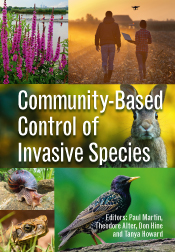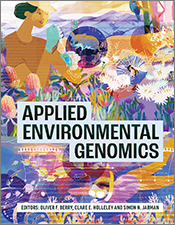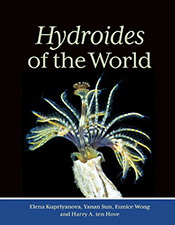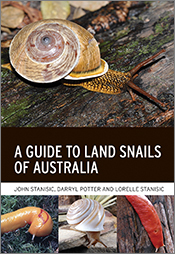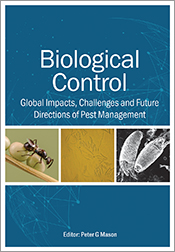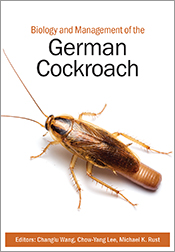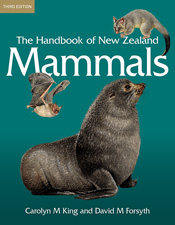Community-based Control of Invasive Species
Edited by: Paul Martin, Theodore Alter, Don Hine, Tanya Howard
Explains institutional frameworks and different approaches to voluntary citizen stewardship.
Invasive species are among the greatest challenges to environmental sustainability and agricultural productivity in the world. One of the most promising approaches to managing invasive species is voluntary citizen stewardship. However, in order for control measures to be effective, private citizens often need to make sustained and sometimes burdensome commitments. + Full description
Community-Based Control of Invasive Species is based on five years of research by leading scholars in natural resource and human behavioural sciences, which involved government and citizen groups in Australia and the United States. It examines questions including, 'how can citizens be engaged in voluntarily managing invasive species?', 'what communication strategies will ensure good motivation and coordination?' and 'how can governing bodies support citizens in their efforts?'.
With chapters on institutional frameworks, changing governance, systems thinking, organisational learning, engagement, communication and behavioural change, this book will be a valuable reference for researchers and practitioners involved in natural resources management.
- Short descriptionNews
Sales in Australia and New Zealand only. This title is available elsewhere through CABI (external link).
Details
Hardback | June 2019 | $ 99.99ISBN: 9781486308873 | 288 pages | 245 x 170 mm
Publisher: CSIRO Publishing
Illustrations
ePDF | June 2019
ISBN: 9781486308880
Publisher: CSIRO Publishing
Available from eRetailers
Features
- Allows the reader to understand the practice and underlying science of key behaviour management methods: engagement, communication and institutional frameworks.
- Provides case studies of different approaches to voluntary citizen stewardship.
- Based on five years of research by leading experts in this specialised field of management from Australia and the US.
Contents
ForewordAcknowledgements
List of contributors
Abbreviations
Preface: supporting citizen stewardship
1: A focus on citizen-led action
2: The socio-ecological systems approach
3: Achieving organisational learning in natural resource management
4: Framing community engagement
5: Community engagement theory for a new natural resource management paradigm
6: Strategy and practice for community engagement
7: Dealing with complexity and change through collective reflection
8: Managing outcome-focused, engaged ‘human’ research
9: Using human behaviour change strategy to improve the management of invasive species
10: Using audience segmentation and targeted social marketing to improve landholder management of invasive animals
11: Understanding and managing mass media effects on public perceptions of science issues such as invasive species management
12: Steps towards more effective citizen action
Glossary
Appendix: Publications and resources created by the IACRC Program 4E
Index
Authors
Paul Martin is a Professor of Law and the Director of the Australian Centre for Agriculture and Law at the University of New England, Australia. He was the leader of the Invasive Animals CRC program 4E: Facilitating Effective Community Action on Invasive Species.
Theodore (Ted) Alter is Professor of Agricultural, Environmental and Regional Economics and Co-Director of the Center for Economic and Community Development at Pennsylvania State University. He was the research team leader of the Invasive Animals CRC program 4E1: Facilitating Effective Community Action.
Don Hine is a Professor of Psychology at the University of New England, Australia. His work focuses on understanding human dimensions of environmental problems. He was the research team leader of the Invasive Animals CRC program 4E2: Triggers for Effective Action.
Tanya Howard is a Lecturer in Natural Resource Policy and Community Engagement at the University of New England, Australia. She was Post-doctoral Research Fellow for the Invasive Animals CRC program 4E1: Facilitating Effective Community Action.

